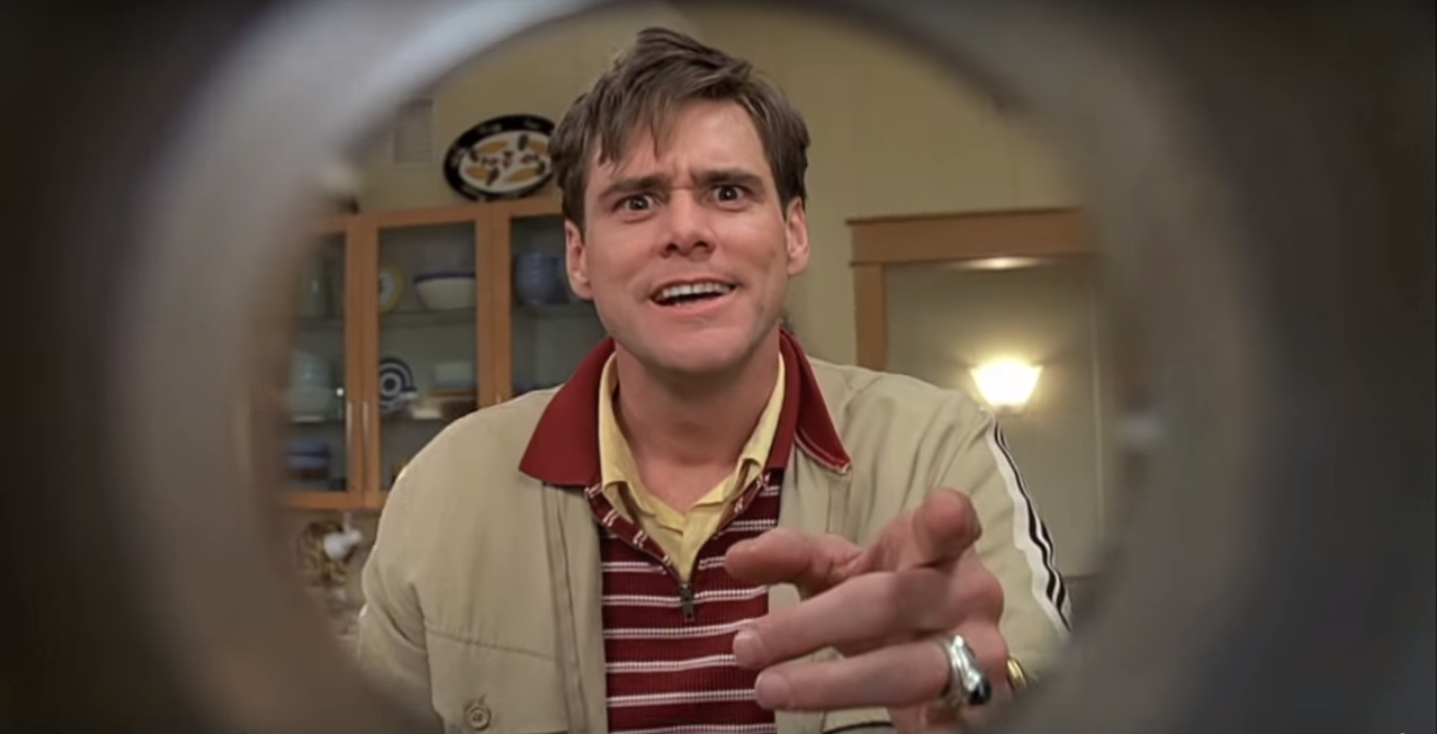“We accept the reality of the world with which we’re presented, it’s as simple as that.”
Ironically, there has never been much reality involved in reality television. Conversations are never as genuine when people know they’re being watched through a camera lens. Aspects of everyday life are muddled when television crews have to set up shop and call “action.”
But what if reality television actually mimicked reality? What if your entire perception of your own reality was a lie?
Armed with a mix of absurdly extreme satire, genuinely dark fiction and a superb performance by Jim Carrey, The Truman Show begs both of those questions and more.
Eighteen years ago, The Truman Show proved that Carrey’s comedy was well equipped for a more dramatic turn. He had been a part of blockbusters in the realm of silly physicality, including the cult classics Dumb and Dumber and Ace Ventura: Pet Detective. These movies were a journey of facial expressions and falling down, and Carrey proved a master of his craft. However, it wasn’t until The Truman Show that Carrey was able to solidify his place not only as a pratfall connoisseur but also as an actor with a grasp of emotion well suited for deeper themes.
The film follows Truman Burbank, a delightful everyman who since birth has been part of a worldwide reality television phenomenon covering his every move, aptly titled “The Truman Show.” Each aspect of Truman’s life is staged; his wife and friends are all actors paid to manipulate and foster his reality. As the first orphan to be adopted and raised by a corporation, Truman is made to spend his entire life living inside of an enormous television studio equipped with hundreds of cameras.
It’s the happiest nightmare imaginable. Contentment is easy to come by in a world where safety is guaranteed and the pleasures of everyday American life are in full supply. But the minute the nature of these simple pleasures are questioned, contentment spirals into unease.
Agency over thought, emotion and perception is an aspect of life so natural it’s easy to forget about. Considering the notion that someone watching your every move was manipulating this agency could drive a person insane.
When Truman realizes everything he thought was real could be an elaborate lie, he’s forced to try to break free from the strings working to puppeteer his life.
It’s a surprisingly unsettling concept for a comedy-drama, but The Truman Show is able to pull it off. Maybe it’s because there is laughably little explanation for many aspects of the film’s plot. Almost everyone in this dystopian future is somehow fine with the notion that a person can be co-opted by a corporation. The actors in “The Truman Show” are naive enough to knowingly commit to living in a faux community for the rest of their foreseeable future. A fully functioning television studio and archaeological dome comparable in size to the Great Wall of China is built for the sole purpose of reality TV.
Even through the obviously stretched farce and satire involved in aspects of the film’s world, it’s impossible to avoid thinking, if only for a second, what if what’s happening to Truman is currently happening to me?
This question can keep The Truman Show floating around in any viewer’s heads for longer than anticipated. It’s a question with seemingly unbound relevance, enabling The Truman Show to remain a beloved and fascinating satire 18 years later.
The Truman Show is simultaneously 103 minutes of simple PG comedic entertainment and a 100-page thesis on existentialism, simulated reality and consumer culture. The Truman Show can make you question anything, even a greeting as simple as “Good morning, and in case I don’t see ya, good afternoon, good evening, and good night!”



